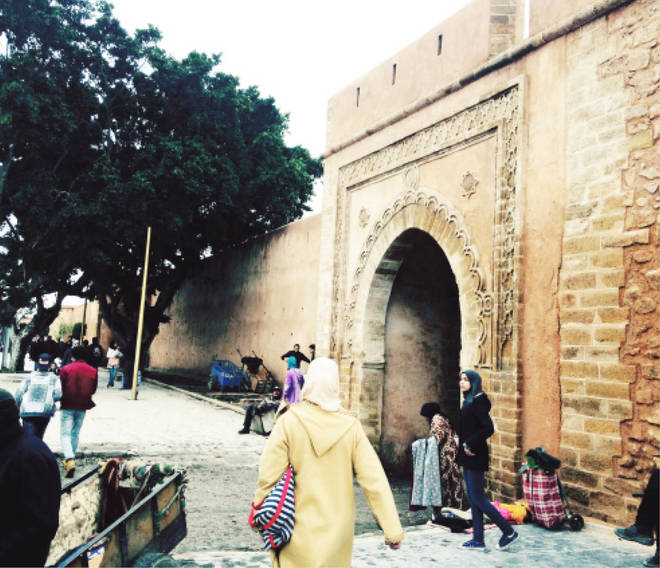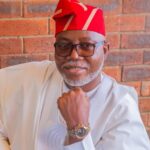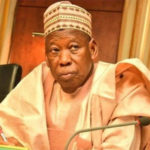
I like to seat by the window whenever I fly, to see the world curving beneath me. I am a writer and cannot help being curious about the lives excluded from mine on the ground, the stories I would never crash into. Which is how I found myself on 5:30 a.m. on Monday the 5th of March looking down at Lagos at dawn from inside a Royal Air Maroc plane headed to Casablanca. Seatbelt fastened, I thought how nothing in moments betray what has gone before. In my case, the prior 48 hours had started with a last minute spot opening up at a US Africa Centre for Strategic Studies conference holding in Rabat, getting a ticket, booking a flight to Lagos from Abuja, finding a cheap hotel in Ikeja near the airport so I could wake up at 3:30 a.m. and, of course, finding and securing a willing taxi driver to convey me. I closed my eyes and tried to sleep.
It was a short nap and I woke up somewhat refreshed just as the inflight service started, the weak coffee helped. The most magical flight I have ever taken was that Lagos-Casablanca trip for the sheer colour of the earth beneath. There is the peculiar Nigerian green, deeper in Lagos but thinning out a bit as the plane moved further north. I wondered what cities we were flying over and made a mental note to Google up the flight path. But this green eventually gave away to a light yet lush brown. We were flying over the Sahara and down there was the sea of sands I had read of in Geography and History. I thought of the great erg of Tenere and the Tibesti massif and wondered if the sands below hid the historical just beneath my gaze and I did not know it. The Sahara and its desiccation has always fascinated me, and I thought of the original Mega Chad which had divided northern Nigeria into two halves on each side of which two different types of states formed-the Hausa city states to the left and the Kanem Bornu empire to the right. In the middle of our path over the Sahara is a spectacular natural wonder, a massive crater that seemed at first to be walls circumfrencing a city. I followed it with my eyes for nearly 30 minutes, so wide was this ghostly space where nothing was and no one lived except rocks and shifting sand. Perhaps it was my fancy but I did think in places I saw the outline of roofs of villages. I thought also of that eastern arm of the Sahara, the Libyan Desert also called ruba el khali, the abode of loneliness, in which Count Laslo d’Almasy and his doomed friendships laboured between the world wars in Michael Ondaatje’s The English Patient. The Sahara swallowed the empty city of the crater and continued a while longer until suddenly, the colour changed to another shade of green and this time I knew this was the Mediterranean belt. Soon enough, our descent to Casablanca was announced. But interestingly we crossed the African continental shelf over the Atlantic and then the pilot executed an elaborate turn and we approached whatever runway he had been assigned at the King Mohammed V airport.
Passport control was smooth and efficient after some initial delay concerning my visa. The Casablanca I met was drizzling and breezy. The airport had ornamental palms and there was this whistling sound of strong winds passing through the trees. I located the driver sent to pick me but we had to wait for other participants who eventually failed to arrive. The drive from Casablanca to Rabat was smooth, as was the highway with its toll gates, and I could not help thinking of the Kaduna-Abuja expressway and how, here, I had no fear of robbers or being kidnapped. Nigeria and its issues follow you everywhere, and I could not help a sadness for those who defend the incompetence of current and previous Nigerian governments who do not know better or that a better quality of life is easily theirs. Those who know better, who have travelled even a little bit, are of course the irredeemable, possibly the truly evil citizen.
We arrived Rabat a little over an hour later and I was dropped in front of the Hotel la tour Hassan on rue Chellah, my home for the next few days. The hotel is named for the nearby Hassan Tower, built in the 12th century by one of the early Moroccan kings. There is a second one, by the same builder, in Andalusia in southern Spain. The tower is very beautiful at night. The hotel is a palace built in 1914 in the Moorish style as a place for the European and Moroccan elite, it was expanded later on with designs given personally by Hassan II, father of the current king. I felt vicariously famous, staying at a place where Lenny Kravitz had celebrated his birthday. It might interest the Nigerian reader that this hotel is a “government hotel”, owned by the Moroccan state. I could not help thinking of the Hill Station Hotel and Plateau Hotel, both in my native Jos, and what we as a people have done with these legacies. Check in was smooth, my hosts had made all the arrangements. I was grateful to the Americans for the invitation and for all the trouble to ensure I got a flight and a visa at short notice. My room was lovely, with a twin bed though, spotless white walls and a latticework window overlooking the rue Chellah. Everything you imagine in a 5-star hotel was there, including a Nespresso coffee machine which I was to make very good use of.
The next morning at breakfast, I met the other Nigerian participants, four of us in all. All three were known to me already-the wife of my older friend whom I’d met socially several times, my boss while I briefly worked for a government minister, and my senior by two years at the Faculty of Law at Zaria, who is now a top prosecutor at the Ministry of Justice. The conference, a roundtable on countering violent extremism (CVE) in Africa, started that morning. I introduced myself as a novelist, gave my background and talked a little about the Association of Nigerian Authors Preventing and Countering Violent Extremism (ANA PCVE) programme. It is always humbling to be amidst men and women well above your pay grade, vastly more experienced in their fields, where nonetheless there is respect for all contributions, even my modest ones. While I was there to give perspectives on violent extremism as it is connected with culture and literature and the arts, I was also there to learn from these varied experts.
I like to travel because travel opens one’s eyes and one’s life to the lived experiences of others. Perhaps at the bottom of this is the natural wanderer and nomad’s desire to syncretize all humanity and find “beneath all a common thread running”? In any case, I like to walk and after the day’s session, I set off to find dinner and explore. I people-watched the Moroccans and later found a really lovely pizzeria where I had seven of eight slices of the basic but well-made snack. That was the day’s adventure. Of course, the thing with travel and wanting to see the sights at street level is you quickly realize you’re not as fit as you never were, being a pre-middle aged man.
The second day, I decided to go and try out Moroccan cuisine, particularly the lamb ragine a friend had told me I had to try. Another friend had recommended the Dar Zaki restaurant and a quick Google Maps search indicated it was in the old city, the ancient medina or ribat that had given the city its name. These coincidences had to be divinely sanctioned and armed with a printed map the concierge was kind enough to give me, I left the hotel. It was late afternoon already and the residents were heading home, dressed in warm clothing with so many smoking cigarettes. Some already were in the cafés that punctuated the streets, drinking Moroccan tea which I liked, and coffee, mostly men gisting with their cronies and friends. I nodded and smiled at the African faces I saw around a bus park opposite a Shell petrol station, got nodded and smiled back at often enough. I saw the trams like something out of this world, ferrying people from my part of the city to other unknown regions. I wished then I could speak French or Arabic, to hop on a tram as I did once in Germany, and ride the line to the very end the better to see the city. I could do neither so I made my way on to the ribat. Its adobe walls immediately reminded me of the walls of Zaria and Kano, sturdy, earthen and rooted. But the last time I visited Zaria City, people were already breaking the ancient walls to build their own houses. Of course it is earth, of course the main thing about using earth to build is that it can be reused, but where was the sense of history? One cannot escape Nigeria’s issues and when I entered the old city itself, I saw that a long stretch of it had been turned into a bazaar of shops. What it takes really is vision and the will to follow it through. On a particular alley in the market, something curious had been done with the paint and the roof so that the waning sun turned it into a street of gold. I stopped to buy gifts for friends, priced carpets and eventually found the Dar Zaki restaurant closed. So, I had a haircut and then made my way back to the hotel.
On the last night, we Nigerians asked as many who wished to join us for a night out at the Marina bay. A day before, I had managed to get lost seeking that same Marina, stumbling unto an old graveyard by the sea. I had finally found the marina by mistake and had sat down there for an hour before realizing I was still lost. That last evening, with my old and new friends at the Al Masri restaurant, owned by an Egyptian perhaps, we sat and talked about our countries and experiences. A French officer taught me how to drink wine properly in a restaurant and I had a really lovely chicken dish which I’d ordered because poulet was recognizable on the menu. At just after midnight, we called it quits and piled into taxis for the hotel. I stopped to look back and sighed for the experience of Morocco, thinking that I should come back again soon with more time on my hands. There was so much there. But for now, the clock of my life said I had to sleep and get some rest for in just a few hours later, I would need to get myself to Casablanca and a flight to a home and its mediocrities and hypocrisies for which I have only the most mixed of feelings.
Richard Ali, poet and lawyer, is the author of City of Memories. A member of Nairobi-based Jalada Africa, he sits on the board of Uganda’s Babishai Niwe Poetry Foundation and is the Programme Manager of ANA PCVE.




